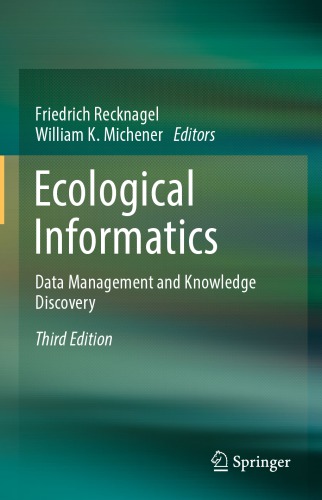

Most ebook files are in PDF format, so you can easily read them using various software such as Foxit Reader or directly on the Google Chrome browser.
Some ebook files are released by publishers in other formats such as .awz, .mobi, .epub, .fb2, etc. You may need to install specific software to read these formats on mobile/PC, such as Calibre.
Please read the tutorial at this link: https://ebookbell.com/faq
We offer FREE conversion to the popular formats you request; however, this may take some time. Therefore, right after payment, please email us, and we will try to provide the service as quickly as possible.
For some exceptional file formats or broken links (if any), please refrain from opening any disputes. Instead, email us first, and we will try to assist within a maximum of 6 hours.
EbookBell Team

5.0
50 reviewsThis book introduces readers to ecological informatics as an emerging discipline that takes into account the data-intensive nature of ecology, the valuable information to be found in ecological data, and the need to communicate results and inform decisions, including those related to research, conservation and resource management. At its core, ecological informatics combines developments in information technology and ecological theory with applications that facilitate ecological research and the dissemination of results to scientists and the public. Its conceptual framework links ecological entities (genomes, organisms, populations, communities, ecosystems, landscapes) with data management, analysis and synthesis, and communicates new findings to inform decisions by following the course of a loop.
In comparison to the 2nd edition published in 2006, the 3rd edition of Ecological Informatics has been completely restructured on the basis of the generic conceptual f
ramework provided in Figure 1. It reflects the significant advances in data management, analysis and synthesis that have been made over the past 10 years, including new remote and in situ sensing techniques, the emergence of ecological and environmental observatories, novel evolutionary computations for knowledge discovery and forecasting, and new approaches to communicating results and informing decisions.